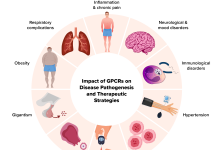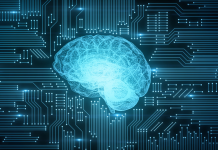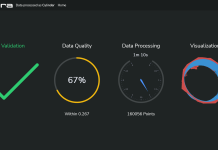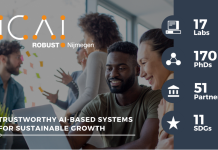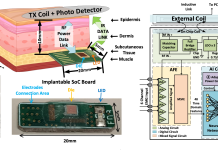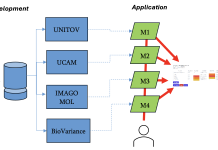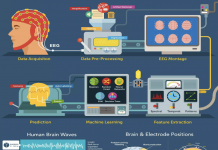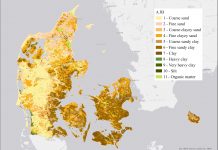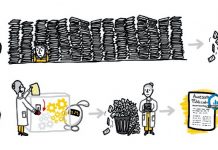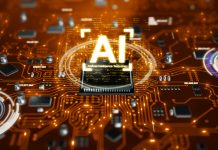Open Access Government produces compelling and informative news, publications, eBooks, and academic research articles for the public and private sector looking at health, diseases & conditions, workplace, research & innovation, digital transformation, government policy, environment, agriculture, energy, transport and more.
Home 2025
Archives
AI-driven innovations in GPCR ligand synthesis for treating inflammatory diseases
This article explores the significance of G Protein-Coupled Receptors (GPCRs) in therapeutic drug development and strategies for advancing GPCR-targeted therapies, including the use of agonists, antagonists, biased agonism, and allosteric modulators.
Programmable iontronic neural networks
Guo-Xing Miao, Professor at the University of Waterloo, guides us through programmable iontronic neural networks.
The logical reasoning why AI/ML is a hoax and how Inora’s Organic Intelligence Core...
AI suffers from inaccurate, numerically unvalidated calculations which lead to randomly accurate and unreliable results. Accuracy is the deviation from a True Value which Inora Technologies OICT Provides.
AI to create personalised health responses to air pollution
Professor Fan Chung, Professor Christopher Pain and Claire Dilliway from Imperial College London, walk us through the exciting use of artificial intelligence to create personalised health responses to air pollution and invite you to get involved.
Trustworthy AI for semiconductor manufacturing
Marcel van Gerven, a Professor of Artificial Cognitive Systems at Radboud University, discusses how his team’s research on AI models, algorithms, and demonstrators could serve as a blueprint for the semiconductor manufacturing industry.
Intra-operative imaging solutions for surgeons
Birgitta Dresp from the Centre National de la Recherche Scientifique (CNRS) discusses the challenges associated with intra-operative imaging technology and the quest for gold standards of surgical skill.
A game that poses a challenge to artificial intelligence
Steven J. Brams, hailing from New York University, unveils a game that poses a challenge to artificial intelligence.
Artificial intelligence (AI) in mammographic screening in Norway
BreastScreen Norway discusses how the results from their screening programme for early breast cancer detection can influence future artificial intelligence to streamline early breast cancer detection.
AI-empowered neural processing for intelligent human-machine interface and biomedical devices
Jie Gu, Associate Professor from Northwestern University, examines AI-empowered neural processing for intelligent human-machine interface and biomedical devices.
The European REVERT Project: An ai-based dss for treatment selection
Find out here about the European REVERT project, an AI-based DSS for treatment selection.
How Tun-AI technology can be used to estimate tuna biomass
Satlink, a leading buoy manufacturer, has partnered with Komorebi AI researchers to develop Tun-AI, a machine-learning protocol that contextualizes echo-sounder data from buoys to estimate tuna biomass, shaping the future of fishery science.
AI healthcare research: Pioneering iSMART Lab
Dr Narges Armanfard, Professor, talks us through the AI healthcare research at McGill University which is spearheading a groundbreaking initiative – the iSMART Lab.
Revolutionizing agriculture: Unleashing the potential of AI and big data in soil health monitoring
In a recent interview, our editors delved into the world of soil health monitoring and the transformative role played by artificial intelligence (AI), big data, and machine learning, with Mogens H. Greve, Professor and Head of the Soil Section at the Institute of Agroecology, Aarhus University.
Towards generalised pairs trading strategies through AI
Here, we learn about Professor Chien-Feng Huang’s interdisciplinary research at the National University of Kaohsiung in Taiwan, concerning the move towards generalised pairs trading strategies through artificial intelligence.
Human-centirc artificial intelligence: Frontier research and building industry capability
Chin-Teng Lin, Distinguished Professor from the University of Technology Sydney, Human-centric AI Centre, AAII, explores human-centric AI, focusing on frontier research & building industry capability.
Revolutionizing systematic reviews: the ASReview project’s call for trust and transparency in AI-aided screening...
Owing to the challenges inherent in the screening process, finding a low percentage of relevant studies at a high cost is common, making AI-aided screening tools a necessity.
Optical character recognition for ancient non-alphabetic scripts
Shai Gordin, Senior Lecturer at Digital Pasts Lab in Ariel University, looks at the deciphering of ancient non-alphabetic scripts, and the technology we use to understand it.
High-frequency trading through artificial intelligence for financial innovation
Professor Chien-Feng Huang, at the National University of Kaohsiung in Taiwan delves into high-frequency trading across Artificial Intelligence.

